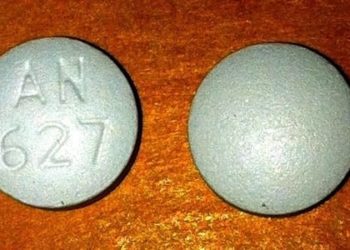Artificial intelligence demonstrates the ability to correlate surgical techniques to intraoperative outcomes
1. Aklilu and colleagues conducted an artificial intelligence computer vision (CV) model to detect surgical techniques during laparoscopic cholecystectomies.
2. The CV model effectively identified surgical techniques, which facilitated accurate prediction of blood loss and surgical experience using a statistical model.
Evidence Rating Level: 2 (Good)
Study Rundown: It has been difficult to understand the precise influence of specific procedural maneuvers on surgical outcomes. Computer vision (CV) models, a field within artificial intelligence (AI), could reveal intricate associations between surgical techniques and patient outcomes. Aklilu and colleagues trained a CV model to recognize surgical activities and used a statistical model to predict blood loss and surgical experience. They trained the model using laparoscopic video footage of cholecystectomies and relevant patient clinical data. The model identified surgical activities, defined as surgical action triplets (SATs), which included the instrument in use, the instrument’s motion, and the manipulated anatomical structure. The study found that the SATs recognized by the CV model achieved an area under the receiver operating characteristic (AUROC) of 0.81 when predicting blood loss using SATs, and an AUROC of 0.78 for predicting surgical experience. Higher blood loss was associated with longer durations of suction irrigator and L-hook electrocautery use. Overall, this study highlighted the potential of AI in analyzing laparoscopic surgical videos on a large scale and discovering specific associations between surgical actions and operative outcomes.
Click here to read the study in NEJM AI
Relevant Reading: Development and Validation of a Machine Learning Model to Identify Patients Before Surgery at High Risk for Postoperative Adverse Events
In-Depth [retrospective cohort]: A CV model was trained with 90 hours of laparoscopic videos from 243 patients, 24 surgeons, and seven hospitals. Twelve trained annotators (e.g., surgical residents) labelled SATs in 114 of the 243 patient cases. SATs included the instrument in use, the instrument’s motion, and the manipulated anatomical structure. 16 instruments, 13 motions, and 19 anatomical structures were identified, producing 150 combinations. The model detected SATs, and the authors calculated derivatives from the SATs to predict the primary outcomes: operative blood loss and surgical experience. The former was categorized as minimal (≤ 10 mL) and significant (> 10 mL) and was estimated by the operating surgeon and refined through independent review. The latter was categorized as low experience and high experience, with 15 years being the threshold. Disease severity, a confounder, was accounted for using the Parkland Grading Scale (PGS). Across the entire cohort, the SATs identified by the CV model achieved an AUROC of 0.81 for predicting blood loss. In cases with a gallbladder of PGS 1 or 2, higher blood loss was strongly correlated with longer durations of suction irrigator and L-hook electrocautery use (p = 0.01). In cases with PGS 3 or higher, higher blood loss was associated with longer usage of the suction irrigator for dissecting the cystic pedicle (p = 0.04). The SATs predicted surgical experience with an AUROC of 0.78. Lower experience was associated with longer case duration (0 = 0.07). While the study demonstrated promising results, it was limited by the exclusive focus on cholecystectomies and data collection challenges.
Image: PD
©2024 2 Minute Medicine, Inc. All rights reserved. No works may be reproduced without expressed written consent from 2 Minute Medicine, Inc. Inquire about licensing here. No article should be construed as medical advice and is not intended as such by the authors or by 2 Minute Medicine, Inc.








